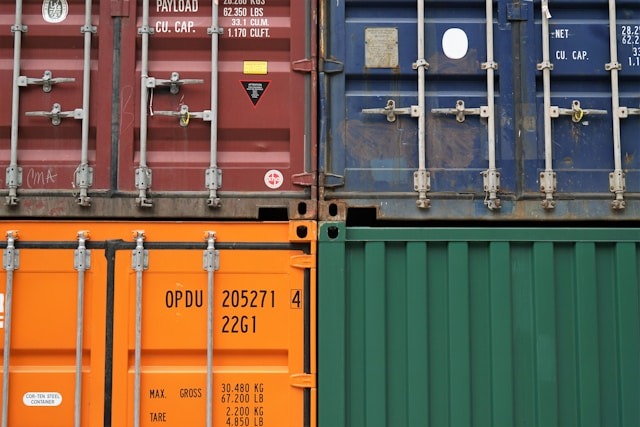The logistics and transportation industry is the heartbeat of the global economy, moving goods from one place to another, minimizing interruptions, and keeping the supply chain wheels turning. Within this giant ecosystem, two critical players are often unsung heroes: freight brokers and freight forwarders. But what are these roles, and what sets them apart? If you’re looking to take your first step into this industry or just curious about the backbone of cargo movement, this comprehensive guide is your launchpad.
Understanding the nuances of freight brokering and freight forwarding can not only give you a competitive edge but also open up exciting career paths ripe with opportunity. From demystifying the industry terminology to details about how to forge a successful career, let’s dive headfirst into the world of brokering and forwarding.
Freight Brokering: The Art of Making Connections and Deals
The Basics of Freight Brokering
At its core, freight brokering is about making connections. Brokers act as intermediaries between shippers who need to move cargo and carriers with the capacity to move it. They negotiate deals, coordinate the logistics, and ensure that goods reach their destination.
The Role of a Freight Broker
A freight broker has several key responsibilities, including:
- Connecting Shippers with Carriers: Brokers have existing relationships with carriers and use them to find the best match for a shipper’s needs.
- Negotiating Rates: Brokers must be skilled in finding a middle ground between what a shipper can pay and what a carrier will accept.
- Document Management: Handling the paperwork is fundamental to ensuring a smooth transaction.
- Resolving Issues: When things go wrong, brokers are the ones who troubleshoot and find solutions.
Starting Your Career in Freight Brokering
To become a broker, you need to understand the legal and operational aspects of the business. Here’s what the journey typically looks like:
Education and Training
You don’t need a degree to become a freight broker, but industry-specific training is essential. If you want to learn about freight forwarding, it is essential to find a broker who’s willing to teach and mentor you. You can also take online courses or attend workshops to gain knowledge about the industry.
Getting Licensed
Unlike a forwarder, brokers are required to get a license from the Federal Motor Carrier Safety Administration (FMCSA). The process involves obtaining a USDOT number, registering for authority to operate as a broker, and providing a BMC-84 or BMC-85 bond.
Building Your Business
With a license in hand, it’s time to set up your company. This means establishing your brand, building relationships, and creating a web presence.
Freight Forwarding: The Science of Streamlining Shipments
The Fundamentals of Freight Forwarding
While a freight broker is focused on individual deals, a freight forwarder’s job is to oversee the entire shipment process. Forwarders ensure shipments move from origin to destination efficiently, cost-effectively, and with as little hassle as possible.
The Role of a Freight Forwarder
Key functions of a freight forwarder include:
- Arranging Transportation: Forwarders select carriers, routes, and modes of transportation.
- Managing Inventory: They oversee warehousing for short periods, ensuring goods are ready to move as soon as transportation permits.
- Navigating Customs: Forwarders are well-versed in international trade regulations and manage the documentation that customs require.
- Minimizing Red Tape: Part of a forwarder’s skill set includes knowing how to streamline processes to avoid delays.
Key Differences Between Brokering and Forwarding
While both freight brokers and freight forwarders play pivotal roles in the supply chain, they differ in scope and function. Freight brokers act as the nexus between the shipper and the carrier, focusing on the immediate task of securing transportation for cargo. In contrast, freight forwarders take a broader approach, managing the cargo’s journey from start to end. This includes organizing the transport, handling the warehousing, and navigating the complexities of customs and international regulations. Ultimately, brokers facilitate specific logistics transactions, whereas forwarders offer a comprehensive suite of services encompassing the entire shipment lifecycle.
Future Trends in Freight Brokering and Forwarding
As the logistics industry continues to evolve, freight brokering and forwarding are being reshaped by technology, globalization, and changing regulations. The advent of digital freight matching platforms promises to streamline the connection between shippers and carriers, making processes more efficient and transparent. Simultaneously, advancements in IoT and blockchain technology offer new ways to track shipments and secure transactions, enhancing accountability across the supply chain. Globalization demands that both brokers and forwarders stay informed on international trade agreements and environmental policies, ensuring compliance and promoting sustainability. As these trends progress, those in the brokering and forwarding sectors must adapt quickly to maintain a competitive edge and support the ever-growing demands of global commerce.
The fields of freight brokering and freight forwarding are dynamic and essential components of the vast logistics industry. Whether you are considering a career in this domain or seeking to understand the path your goods take from point A to point B, the intricacies laid out in this guide are only the beginning. As technology, trade, and global connectivity continue to evolve, so too will the roles of the professionals who keep the world moving. Embrace the journey, and may your career in logistics be as rich and fulfilling as the cargo you’re entrusted to handle.


